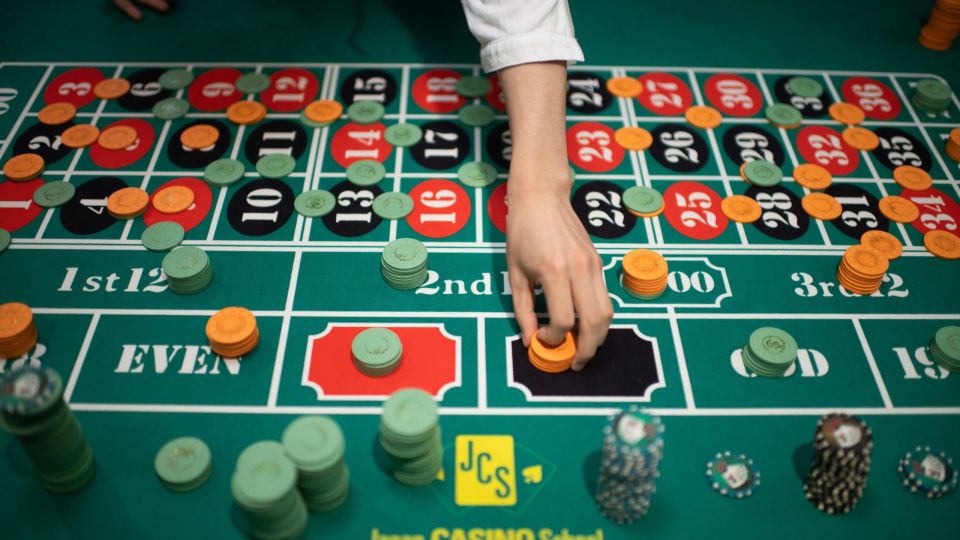June 20, 2018
Locals and foreign residents to pay $74 admission fee; Visits capped at 10 per month.
Japan’s powerful Lower Chamber of Parliament has passed a controversial Bill to regulate the setting up of integrated resorts, including casinos. This paves the way for casino moguls to enter what is projected to become the world’s second-largest gaming market, after Macau.
Yesterday’s acrimonious session was marked by heckling, with the ruling Liberal Democratic Party (LDP) coalition being accused of railroading the casino regulation Bill. It came days after a physical scuffle broke out in Parliament over a fiery debate on the integrated resorts (IRs) law.
The Bill, which clearly takes a leaf out of Singapore’s book, spells out a raft of measures meant to address public concerns that casinos might aggravate issues of problem gambling and organised crime.
IRs will be restricted to only three sites for a start, though this will be put up for review seven years after the first approvals are granted. Locals, as well as foreign residents, will have to pay a 6,000 yen (S$74) admission fee, and are allowed up to three visits per week, capped at a maximum 10 visits a month.
The size of the casino, or gaming space, will be limited to 3 per cent or less of the total IR area. Operators will need to pay a 30 per cent gaming tax to the central and local governments.
But Japan already has five million gambling addicts, or about 5 per cent of its adult population, due to online gambling and its widespread pachinko parlours, which operate in a legal grey zone by offering prizes that players can exchange for cash at another venue.

“While Japan has modelled its system on Singapore’s, with the same social safeguards, it must remember that this needs to be implemented across all forms of gaming, including pachinko parlours,” Mr Brendan Bussmann of Las Vegas gaming and hospitality consultancy Global Market Advisors told The Straits Times.
He said strong casino operators have a track record of promoting responsible gaming programmes, and can leverage technology and other resources to spot problem gamblers.
Already, leading casino giants such as Las Vegas Sands, MGM, Caesars and the Hong Kong-based Melco Resorts & Entertainment are raring to place their bets on Japan, with pledges of multibillion-dollar investments.
And a slew of cities have expressed interest in IRs, including Tomakomai in southern Hokkaido and Kushiro in eastern Hokkaido, Sendai in the north-east, Wakayama in central Japan and Sasebo in Nagasaki in the south-west. These will likely be pitted against big cities, including Osaka, as well as Yokohama and Chiba in the Greater Tokyo region.
“Integrated resorts will create new employment and culture, bolstering Japan’s international competitive power,” Prime Minister Shinzo Abe said earlier this month.
Gaming consultancies have said Japan’s casino market could be worth about US$16 billion (S$22 billion), about half of Macau’s yearly revenues but some US$5 billion more than that of Las Vegas.
Japan, which drew a record 28.6 million foreign tourists last year, anticipates 40 million visitors by 2020, when it is due to host the Tokyo Olympic and Paralympic Games. The first IRs are set to open only after the Games – possibly around 2023 – and Japan hopes they will help to sustain continued tourism growth. Targets have been set for 60 million tourists by 2030.
- 5mNumber of gambling addicts in Japan, or about 5 per cent of its adult population, due to online gambling and its pachinko parlours.
40m
Number of visitors anticipated by Japan by 2020, when it is due to host the Tokyo Olympic and Paralympic Games.
Experts say the IRs will be a major boost for rural revitalisation, especially as they will help to create jobs and jump-start the local economy at a time when many Japanese areas are facing depopulation.
But they also argue that Japan will reap maximum economic impact from the IRs only if they open near major cities, drawing travellers keen on other entertainment options, as well as organisers of Mice (meetings, incentives, conferences and exhibitions) events.
“As Japan looks to locations, it must balance between urban facilities in cities such as Osaka and Yokohama while also developing regional facilities in more rural parts in the prefectures of Nagasaki and Hokkaido,” Mr Bussmann said.
The Bill will now go before Parliament’s upper chamber for debate. Although the current session is set to close today, the LDP has said it will ask for an extension.


